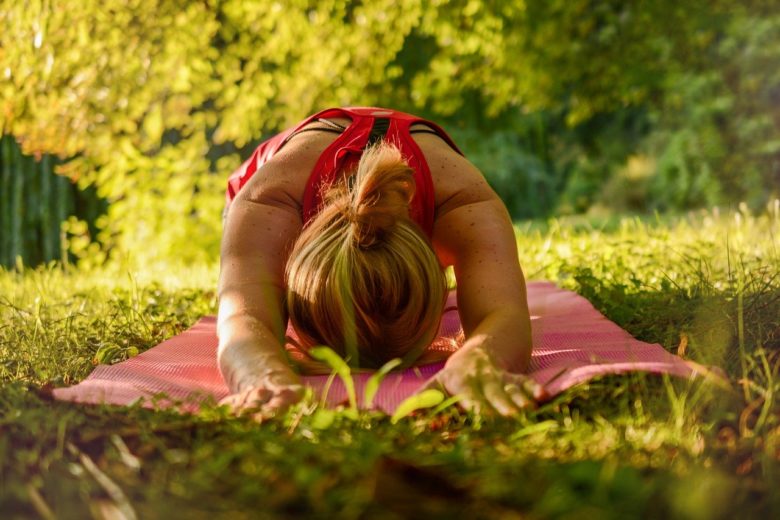Aging is a gift. It is a blessing to have lived many years without forgetting the wisdom and grace that go with it.
However, your retirement years present challenges, including an increased risk of disease, reduced muscle mass and strength, loss of flexibility and balance, reduced mobility, and memory loss, among others.
These challenges do not have to be condemned every passing birthday. Practicing a healthy lifestyle that involves exercising, eating healthy and taking care of your mental and emotional well-being can help you live well even in your old age. Research has shown that the practice of yoga regularly offers many benefits to seniors, including giving you more energy.
The practice of yoga is an activity known to all, and practiced by a variety of people, whatever their age may be. Indeed, from the yoga mat to the sun salutation, passing through mindfulness or torsion, it is a whole section of our body and our mind that we work, at 7 or 77 years of age. However, age can play a role in letting go and in the effectiveness of certain yoga postures.
When Are You A “Senior”?
But at what age are you considered a “senior”? Whatever discipline you decide to practice, yoga class or not, there is an age that we consider to be that of maturity, or “senior”. It is from this age that we consider that a certain respect for age must be carried out, and that we must adapt certain exercises to the body and the state of health of our elders. However, these are generalities offered by sport, because some people of this age are as young as many others.
Despite all this, it is obvious that certain courses can be offered to seniors, for the simple reason that despite all the exceptions that confirm the rule, most older people have a substantially similar level in yoga , as have young people. A senior is therefore a person whose age is that of being retired, and whose physical form does not allow for mistakes.
How Yoga Works
When examining yoga, we mean breathing, alignment of the spine, muscle strengthening, flexibility and stress management. All this cannot therefore be practiced in a deep and intensive way, but everything is possible when you are a senior, and we will probably learn a lot more from them in our yoga practice than many others. You just have to know how to balance the energy and the intensity of the lessons.
“Whether we are 50 or 98, most of the time, our body is a little less reactive, a little less flexible, and much more difficult to manage after a certain age” suggests Kirsty Davis from Yoga Training Guide. This is not a problem, but a fact, that you should know how to take into account to make the most of the benefits of yoga, whether it is breathing exercises, pranayama, or asanas.
Group Yoga For Seniors
The idea, when you are a senior, is to follow group lessons, adapted to our state of health, so as not to practice yoga alone, and often poorly perform the postures, or even be mistaken in them. The idea, when practicing yoga, is still to achieve balance between your body, mind and spirit, regardless of age. Yoga is open to everyone, you just have to know how to take advantage of it.
Yoga For Ailments
Among the types of yoga that can be favored when one reaches a certain age, or which correspond more to the problems encountered at this age, one could try:
- Yoga nidra, which will help more people whose sleep disorders become an obstacle or a concern,
- Laughter yoga, mainly intended for all those who feel sad and alone, as we often see at retirement age.
These are obviously only examples, but they testify to the fact that one can be senior and practice yoga simply. You just have to learn to listen to your body, its inner harmony, and learn about the type of yoga to promote.
Benefits of Yoga for Seniors
Increase your strength and endurance by helping you build muscle and improve bone density.
It can also help promote your mental health. Many mental illnesses are associated with aging, including Alzheimer’s disease, anxiety and depression.
Yoga and its meditative aspect have been shown to promote the development of gray matter , reduce stress and improve cerebral circulation.
Improves your cardiovascular and respiratory functions. The continuous deep breathing accentuated in yoga activates your respiratory system and increases your lung capacity.
Improves your flexibility and agility. As we age, the body naturally loses flexibility. The practice of yoga promotes circulation in the joints and ensures that your joints are able to move within the limits of their range of motion.
Helps in the prevention and management of chronic diseases such as arthritis and cardiovascular disease.
Is Yoga Right For You?
Now you may be thinking, “I am convinced of the many benefits that yoga can offer me and the extent to which it would help improve the quality of my life.” But, I don’t think I have enough strength or flexibility to do the handstand or the handstand, or to twist my body in certain postures ”.
The good news is that there are different types of yoga and over 1000 poses and variations of yoga to suit the needs and abilities of different people. Restorative yoga, yin yoga, hatha yoga and chair yoga are types of yoga that are suitable for the elderly. With the support of a few accessories, you will be able to enter the different poses and enjoy their benefits.

